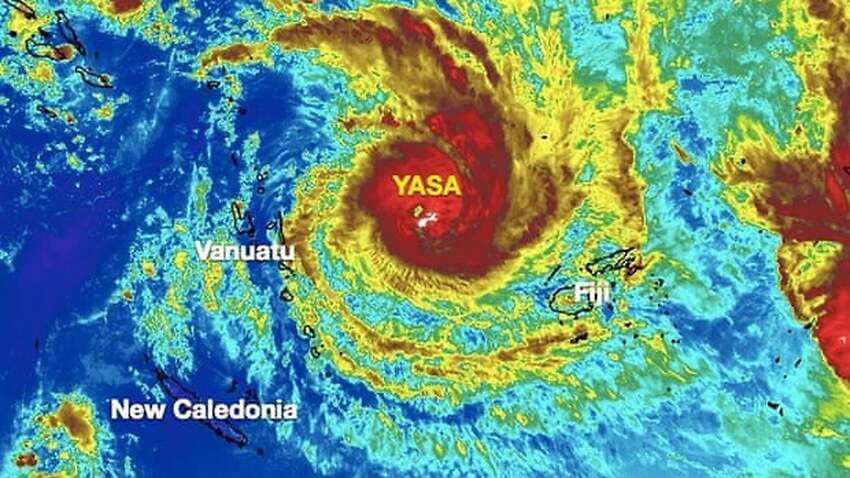Tropical Cyclone Yasa has intensified into a top-of-the-scale category five super-storm in the Pacific and remains on track to hit Fiji this week, forecasters said on Wednesday.
The Fiji Meteorological Service said the monster storm was whipping up wind gusts of up to 280 kilometres per hour as it gathers strength about 550 kilometres northwest of the main island Viti Levu.
The New Zealand-based meteorological service Weatherwatch said Fiji was “smack bang in the firing line” of the slow-moving cyclone, which is expected to hit late Thursday or early Friday.
“A storm this powerful can destroy buildings, uproot trees, strip trees of leaves, cause slips, flooding and coastal inundation,” Weatherwatch managing director Philip Duncan said.
“Yasa is a life-threatening event for those in low-lying islands in the Fiji group,” Mr Duncan said.
Prime Minister Frank Bainimarama has already warned residents to prepare for the worst and the Disaster Management Office reinforced that message on Wednesday.
“Clear debris from your compound, get your house reinforced with shutters and extra nails on the roof,” it advised.
Students were advised to stay home, with the education ministry saying many schools were being converted into evacuation centres.
In some good news for the region, another tropical cyclone, Zazu, took a sharp turn to the southeast late Tuesday and was no longer threatening the Tongan capital Nuku’alofa.
But the presence of Zazu, which remained at category one and was heading out to open waters, has made modelling for Yasa more difficult, leading to uncertainty over what part of Fiji will be hardest hit.
The storms are the first to form in the South Pacific’s current cyclone system, which runs until May next year.
The region was battered by Tropical Cyclone Harold in April this year, a category five storm that gouged a trail of destruction across the Solomon Islands, Vanuatu, Fiji and Tonga.
Such intense cyclones were once rare but have become increasingly common in recent years, with Bainimarama among those blaming the phenomenon on climate change.







